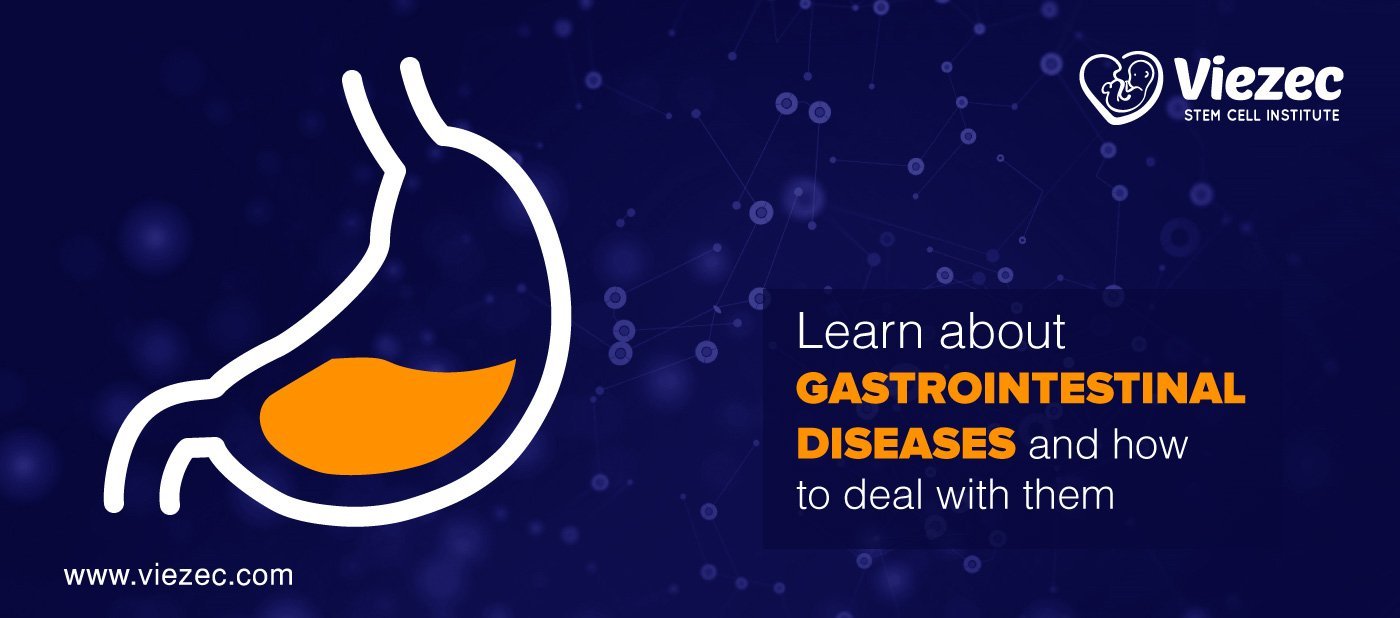Stem cell therapy has emerged as a revolutionary approach in the field of medicine, offering promising avenues for the treatment of various diseases. One area where stem cell therapy shows significant potential is in the realm of gastrointestinal diseases. The gastrointestinal (GI) tract plays a crucial role in the digestion and absorption of nutrients, and any dysfunction in this system can lead to a range of disorders. In this article, we will explore the current state of stem cell therapy for gastrointestinal diseases, its mechanisms, applications, challenges, and the future prospects it holds.
Understanding Gastrointestinal Diseases
Overview of Gastrointestinal System
Before delving into the intricacies of stem cell therapy, it’s essential to understand the structure and function of the gastrointestinal system. The GI tract comprises various organs, including the esophagus, stomach, small intestine, and large intestine, each with a specific role in the digestion and absorption of food. The coordinated function of these organs is vital for maintaining overall health.
Common Gastrointestinal Diseases
Gastrointestinal diseases encompass a broad spectrum of conditions, ranging from inflammatory bowel diseases (IBD) such as Crohn’s disease and ulcerative colitis to functional disorders like irritable bowel syndrome (IBS). Other prevalent conditions include gastroesophageal reflux disease (GERD), celiac disease, and colorectal cancer. These diseases can significantly impact an individual’s quality of life and may require diverse treatment approaches.
Promise of Stem Cell Therapy
Basis of Stem Cell Therapy
Stem cells are undifferentiated cells with the unique ability to differentiate into specialized cell types and undergo self-renewal. This characteristic makes them a potent tool for regenerative medicine. Stem cell therapy involves the transplantation of these cells into damaged tissues to facilitate repair and regeneration.
Types of Stem Cells
There are different types of stem cells used in therapy, including embryonic stem cells, induced pluripotent stem cells (iPSCs), and adult or somatic stem cells. Each type has its advantages and limitations. Embryonic stem cells, derived from embryos, have the potential to differentiate into any cell type. iPSCs are reprogrammed adult cells with similar capabilities, while adult stem cells are found in various tissues and are more specialized.
Applications of Stem Cell Therapy in Gastrointestinal Diseases
Inflammatory Bowel Diseases (IBD)
Targeting Intestinal Inflammation
IBD, comprising Crohn’s disease and ulcerative colitis, involves chronic inflammation of the gastrointestinal tract. Stem cell therapy aims to modulate the immune response and promote tissue repair. Studies have shown promising results in reducing inflammation and improving symptoms in IBD patients.
Challenges and Considerations
Despite the potential benefits, challenges such as immune rejection, ethical concerns, and the risk of tumorigenesis must be addressed. Researchers are exploring strategies to enhance the efficacy of stem cell therapy and mitigate these challenges.
Gastroesophageal Reflux Disease (GERD)
GERD is characterized by the backward flow of stomach acid into the esophagus, causing discomfort and damage to the esophageal lining. Stem cell therapy holds promise in repairing damaged tissues and restoring normal esophageal function. Clinical trials are underway to evaluate the safety and efficacy of this approach in GERD patients.
Liver Diseases
Hepatic Regeneration
The liver, a key organ in digestion and metabolism, is susceptible to various diseases. Stem cell therapy, particularly using hepatic progenitor cells, aims to stimulate liver regeneration and replace damaged hepatocytes. This approach shows potential for treating conditions such as cirrhosis and acute liver failure.
Advancements in Liver Transplantation
Stem cell-derived liver cells are being explored as an alternative to traditional liver transplantation. This could address the shortage of donor organs and reduce the risk of rejection. However, challenges related to cell engraftment and long-term functionality need to be addressed.
Colorectal Cancer
Colorectal cancer is a prevalent malignancy affecting the colon or rectum. Stem cell therapy, combined with other treatment modalities, is being investigated for its potential to target cancer stem cells, which play a role in tumor initiation and recurrence. The complexity of cancer biology poses challenges, and ongoing research aims to refine the therapeutic approach.
Mechanisms of Action
Immunomodulation
Stem cells exert their effects, in part, through immunomodulation. In gastrointestinal diseases involving immune dysregulation, such as IBD, stem cells can modulate the inflammatory response, promoting an environment conducive to tissue repair.
Paracrine Signaling
The release of signaling molecules by stem cells, known as paracrine signaling, plays a crucial role in tissue regeneration. These molecules facilitate communication between cells, promoting cell survival, angiogenesis, and anti-inflammatory effects.
Differentiation and Integration
In cases where tissue damage is extensive, the ability of stem cells to differentiate into specific cell types is essential. Integration into the existing tissue allows for the replacement of damaged cells, contributing to functional recovery.
Challenges and Considerations
Immune Rejection
One significant challenge in stem cell therapy is immune rejection, especially when using allogeneic cells. Researchers are exploring strategies such as immunosuppressive drugs and genetic modification to mitigate this risk.
Ethical Considerations
The use of embryonic stem cells raises ethical concerns due to their origin. Induced pluripotent stem cells offer an alternative, but concerns about their safety and tumorigenic potential persist.
Tumorigenesis
The risk of tumor formation, particularly with pluripotent stem cells, is a critical consideration. Stringent safety measures and careful monitoring in clinical trials are essential to address this concern.
Technical and Logistical Challenges
The successful implementation of stem cell therapy requires overcoming technical challenges related to cell isolation, expansion, and delivery. Logistical issues, including storage and transportation of stem cells, also need careful consideration.
Future Directions and Innovations
Personalized Medicine
Advancements in stem cell research may pave the way for personalized medicine approaches, tailoring treatments based on an individual’s genetic makeup and disease profile. This could enhance the effectiveness of stem cell therapy and reduce adverse effects.
Gene Editing Technologies
The development of precise gene editing technologies, such as CRISPR-Cas9, offers the potential to address genetic abnormalities in stem cells before transplantation. This could further enhance the safety and efficacy of stem cell therapies.
Biomaterials and Tissue Engineering
Incorporating biomaterials and tissue engineering approaches can create supportive environments for stem cell survival and integration. Combining stem cells with scaffold materials may enhance their therapeutic potential in gastrointestinal tissue repair.
Stem cell therapy for gastrointestinal diseases represents a promising frontier in medical research and treatment. The ability of stem cells to modulate immune responses, promote tissue repair, and differentiate into specialized cells offers hope for patients with conditions ranging from IBD to colorectal cancer. However, significant challenges such as immune rejection, ethical considerations, and the risk of tumorigenesis must be addressed for the widespread adoption of this therapy. Ongoing research, technological advancements, and a deeper understanding of stem cell mechanisms will likely shape the future landscape of gastrointestinal disease treatment. As we navigate this evolving field, collaboration between scientists, clinicians, and ethical experts is crucial to ensure the responsible and effective use of stem cell therapy in the realm of gastrointestinal medicine.







